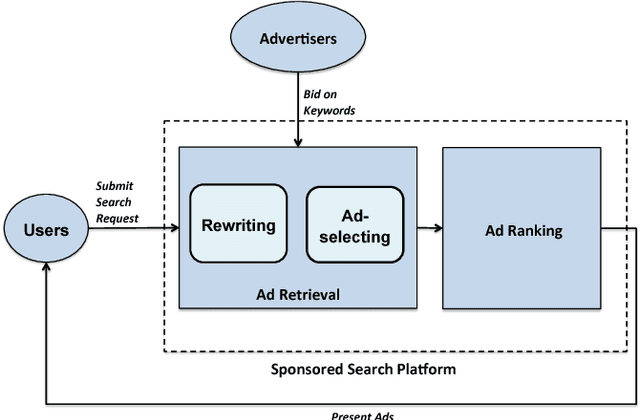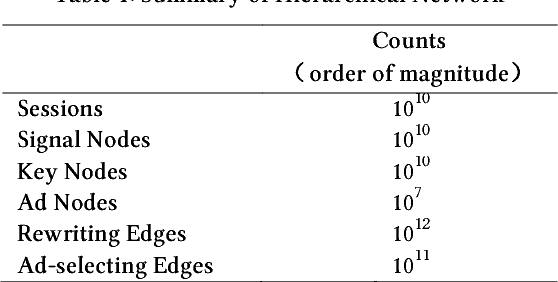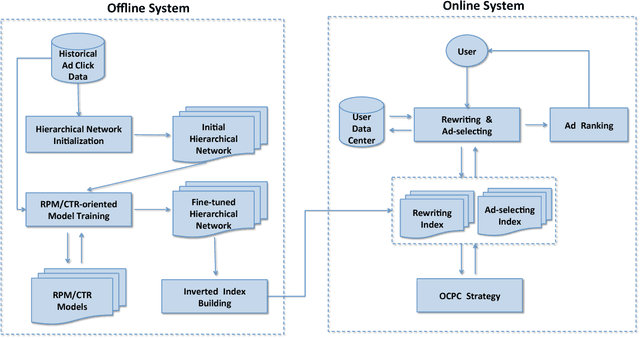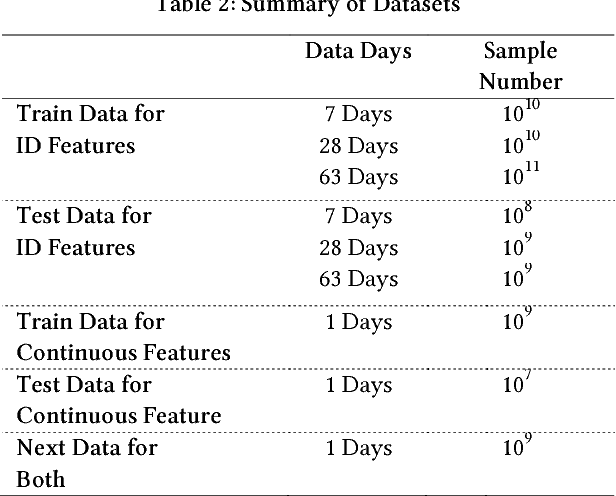Kaipeng Liu
Beyond Keywords and Relevance: A Personalized Ad Retrieval Framework in E-Commerce Sponsored Search
Apr 23, 2018



Abstract:On most sponsored search platforms, advertisers bid on some keywords for their advertisements (ads). Given a search request, ad retrieval module rewrites the query into bidding keywords, and uses these keywords as keys to select Top N ads through inverted indexes. In this way, an ad will not be retrieved even if queries are related when the advertiser does not bid on corresponding keywords. Moreover, most ad retrieval approaches regard rewriting and ad-selecting as two separated tasks, and focus on boosting relevance between search queries and ads. Recently, in e-commerce sponsored search more and more personalized information has been introduced, such as user profiles, long-time and real-time clicks. Personalized information makes ad retrieval able to employ more elements (e.g. real-time clicks) as search signals and retrieval keys, however it makes ad retrieval more difficult to measure ads retrieved through different signals. To address these problems, we propose a novel ad retrieval framework beyond keywords and relevance in e-commerce sponsored search. Firstly, we employ historical ad click data to initialize a hierarchical network representing signals, keys and ads, in which personalized information is introduced. Then we train a model on top of the hierarchical network by learning the weights of edges. Finally we select the best edges according to the model, boosting RPM/CTR. Experimental results on our e-commerce platform demonstrate that our ad retrieval framework achieves good performance.
Optimizing Sponsored Search Ranking Strategy by Deep Reinforcement Learning
Mar 26, 2018



Abstract:Sponsored search is an indispensable business model and a major revenue contributor of almost all the search engines. From the advertisers' side, participating in ranking the search results by paying for the sponsored search advertisement to attract more awareness and purchase facilitates their commercial goal. From the users' side, presenting personalized advertisement reflecting their propensity would make their online search experience more satisfactory. Sponsored search platforms rank the advertisements by a ranking function to determine the list of advertisements to show and the charging price for the advertisers. Hence, it is crucial to find a good ranking function which can simultaneously satisfy the platform, the users and the advertisers. Moreover, advertisements showing positions under different queries from different users may associate with advertisement candidates of different bid price distributions and click probability distributions, which requires the ranking functions to be optimized adaptively to the traffic characteristics. In this work, we proposed a generic framework to optimize the ranking functions by deep reinforcement learning methods. The framework is composed of two parts: an offline learning part which initializes the ranking functions by learning from a simulated advertising environment, allowing adequate exploration of the ranking function parameter space without hurting the performance of the commercial platform. An online learning part which further optimizes the ranking functions by adapting to the online data distribution. Experimental results on a large-scale sponsored search platform confirm the effectiveness of the proposed method.
 Add to Chrome
Add to Chrome Add to Firefox
Add to Firefox Add to Edge
Add to Edge